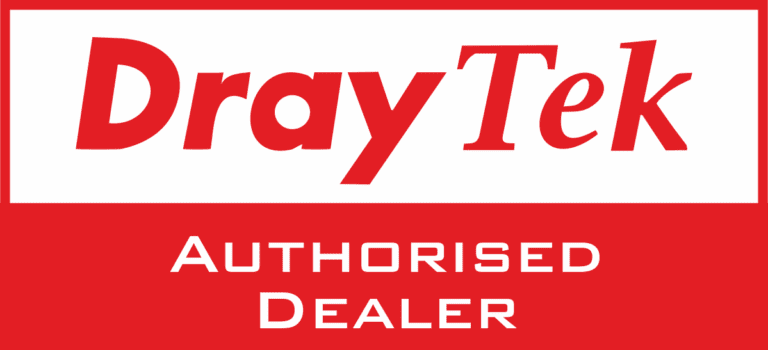Everyday Examples of Cloud Technology
You probably already use cloud technology without even realising it! Here are some common examples:
- Email Services: Gmail, Outlook, and Yahoo Mail are all online-based, allowing you to send and receive emails without needing a specific device.
- File Storage: Platforms like Google Drive, Dropbox, or iCloud let you store and share files online.
- Streaming Services: Netflix, Spotify, and YouTube stream content from their online service, so you don’t have to download anything.
For businesses, cloud technology takes these same principles and applies them to your workflows, tools, and operations, making them more efficient and accessible.
Understanding the Basics of Cloud Technology
What is cloud technology?
Simply put, cloud technology – also known as cloud computing – allows users to store, manage, and access data, software, and services over the Internet instead of relying on a personal computer or office-based server. This eliminates the need for physical storage and infrastructure, providing a flexible, scalable, and cost-effective way to handle everything from file storage and backups to complex business applications and IT systems.
Think of it as a secure, always-accessible digital vault. Instead of storing important files and software on a single device, cloud technology enables you to keep them on the Internet in an system managed by a trusted provider. This means you can access your data anytime, anywhere, as long as you have an Internet connection. Whether you’re working remotely, travelling, or running a business with distributed teams, cloud computing ensures seamless collaboration and connectivity.
Understanding what online technology services are also means recognising its many advantages. They enhance security with automatic updates and encrypted storage, reduce costs by eliminating expensive hardware, and improve efficiency with real-time collaboration tools.
From startups to large enterprises, businesses worldwide are leveraging Internet based technology to drive innovation, agility, and growth.
Key Benefits of Cloud Technology for Your Business
So, why is Internet based technology such a game-changer? Here are a few reasons:
1. Access Anywhere
You and your team can work from anywhere – whether you’re in the office, at home, or on the go. This makes remote work and collaboration a breeze.
2. Cost-Effective
You don’t need to buy and maintain expensive servers or storage devices. Most cloud services offer flexible pricing, so you only pay for what you need.
3. Scalable
As your business grows, your cloud services can grow with you. Need more storage or additional features? It’s as simple as upgrading your plan.
4. Secure
Cloud providers invest heavily in security, offering encrypted data storage, regular backups, and protection from cyber threats. This helps keep your business data safe.
5. Automatic Updates
With cloud-based software, you always have access to the latest features and improvements without needing to install updates yourself.
How Does Cloud Technology Work?
At its core, cloud technology works through a network of servers. These servers are located in massive, highly secure data centres operated by cloud providers like Microsoft, Google, or Amazon. When you upload a file or use a cloud-based app, your data is sent to these servers and stored there. When you need it, the servers send it back to you.
Think of it as your own private space on the Internet. Instead of taking up room on your computer, your data lives in a highly organised, easily accessible “cloud.”
Different Types of Cloud Services
Cloud technology isn’t one-size-fits-all. Here are the main types of cloud services businesses use:
1. Cloud Storage
Store files and data securely online. Services like Microsoft OneDrive, Google Drive or Dropbox are examples.
2. Cloud Software
Use software without installing it on your computer. Examples include Microsoft 365 and QuickBooks Online.
3. Cloud Hosting
Host your website or applications on the cloud. This ensures they’re fast, reliable, and always accessible.
4. Backup and Recovery
Automatically back up your data to the cloud and restore it easily in case of an accident.
Why Should Hertfordshire Businesses Care About the Cloud?
For businesses in Hertfordshire, cloud technology is a practical, cost-effective way to stay competitive in today’s fast-paced world. It helps small and medium-sized businesses:
- Operate more efficiently
- Support remote and hybrid work
- Protect valuable data
- Grow without heavy upfront investments
By adopting cloud solutions, you can streamline operations, save time, and reduce costs while keeping your business secure and flexible.
How AlphaFirst Can Help
We specialise in making cloud technology simple and accessible for local businesses. Whether you’re looking to move your operations to the cloud, improve collaboration, or secure your data, we’re here to help every step of the way. Our team of local experts understands the needs of Hertfordshire businesses and can recommend the right cloud solutions for you.
Ready to Explore the Cloud?
If you’re ready to take the first step or still wondering “What is cloud technology?” – don’t worry, we’ve got you covered. Get in touch with us today for a free consultation, or download our free guide to learn more about the benefits of cloud computing for your business.
Let us help you unlock the power of the cloud and take your business to the next level!







































